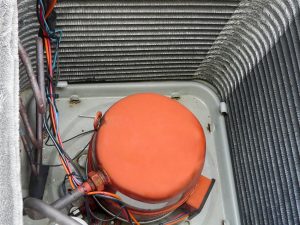The air conditioner’s compressor is often referred to as the “heart” of the cooling system. It plays a critical role in maintaining the comfort of your home, especially during the hot summer months. Understanding how this vital component works and recognizing the signs of potential issues can help you keep your air conditioning in Summit running smoothly and efficiently.
What Is an AC Compressor?
The AC compressor is a mechanical device located in the outdoor unit of your central air conditioning system. Its primary function is to circulate refrigerant, which is a substance that absorbs and releases heat, through the system. By compressing the refrigerant gas, the compressor raises its temperature and pressure, preparing it for the cooling process.
How Does the AC Compressor Work?
The operation of an AC compressor involves several key steps:
- Intake of Low-Pressure Refrigerant Gas:
- The cooling cycle begins when the indoor unit’s evaporator coil absorbs heat from the indoor air. The refrigerant inside the evaporator coil absorbs this heat, turning it into a low-pressure gas. This low-pressure, low-temperature gas is then drawn into the compressor.
- Compression of Refrigerant Gas:
- Once inside the compressor, the refrigerant gas is compressed. This compression process significantly increases the pressure and temperature of the gas. The compressor essentially squeezes the gas into a smaller volume, making it more energetic and hot.
- Heat Release:
- The high-pressure, high-temperature gas is then pushed into the condenser coil, located in the outdoor unit. As the refrigerant moves through the condenser coil, it releases the absorbed heat to the outside air. The refrigerant cools down and turns into a high-pressure liquid.
- Cooling and Recirculation:
- After releasing its heat, the refrigerant moves to the expansion valve, where it cools further and re-enters the indoor unit’s evaporator coil as a low-pressure, cold liquid. The cycle then repeats, continuously cooling your home.
Signs of a Failing AC Compressor
Given its critical role, a malfunctioning compressor can quickly disrupt your home’s comfort. Here are some common signs that your AC compressor might be in trouble:
- Reduced Cooling Efficiency:
- If your AC isn’t cooling as effectively as it used to, it could be a sign that the compressor is struggling to maintain adequate pressure in the system. This often leads to warm air blowing from your vents, even when the system is set to cool.
- Strange Noises:
- Unusual noises coming from the outdoor unit, such as clattering, rattling, or hissing, can indicate a problem with the compressor. These sounds could be caused by loose components, electrical issues, or a failing motor.
- Hard Starting:
- If your AC takes longer to start or seems to be “hard starting” (struggling to turn on), the compressor might be at fault. This can happen when the motor inside the compressor is starting to fail.
- Tripped Circuit Breakers:
- A compressor that’s overworking or short-circuiting can cause your circuit breaker to trip frequently. If this happens, it’s important to have a professional inspect your system to prevent further damage.
- Leaking Refrigerant:
- If you notice a refrigerant leak around your outdoor unit, it’s crucial to address it immediately. Low refrigerant levels can cause the compressor to overheat and eventually fail.
Established in 1912, Max Sr & Paul Schoenwalder Plumbing, Heating and Air Conditioning, A Corp. is your trusted resource for reliable air conditioning repair. Reach out to us today.

